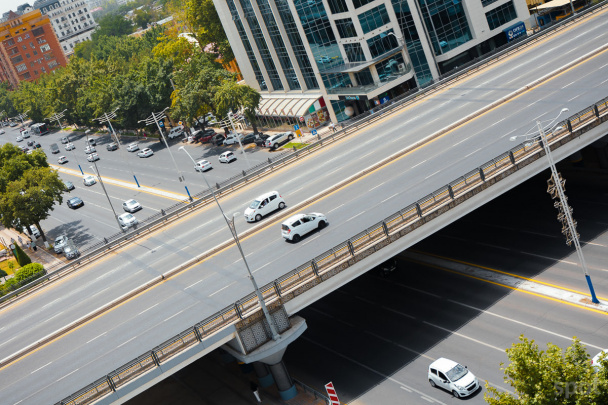Uzbekistan advances legal framework for toll roads and infrastructure
The Legislative Chamber of the Oliy Majlis has passed the first reading of a new version of the Law on Automobile Roads, replacing the 2007 legislation, according to the parliament’s press service. The draft introduces new concepts, mechanisms, and regulations for Uzbekistan’s road infrastructure.
The bill establishes a legal framework for constructing toll roads and outlines incentives for investors funding such projects, a shift from earlier plans for a separate toll road law. It also introduces a planning mechanism to align road development with the needs of the population and economy. Road design must now consider public opinion, environmental impact, and accessibility for pedestrians.
Additionally, the law addresses cost recovery for road repairs related to communication network construction, sets regulations for oversized and heavy vehicles, and establishes standards for roadside service facilities.
Deputies noted that the bill paves the way for a toll road network in Uzbekistan, attracting investment while improving road quality and longevity.
Background
Discussions on toll roads in Uzbekistan began in 2018, when German company GP Günter Papenburg was engaged for a toll road project. In February 2019, the Committee for Automobile Roads (Uzavtodor) drafted a law on toll roads, defining pricing and payment collection mechanisms, but it was not adopted after public consultation.
In early 2024, renewed discussions emerged about a dedicated toll road law. Bakhtiyor Rakhmatov, Director of the Strategic Reforms Agency, emphasized that it would regulate toll road construction, operation, and payment distribution.
Two toll road projects – Tashkent–Samarkand and Tashkent–Andijan – have been under discussion. The Tashkent–Andijan road’s estimated cost rose from $2.83 billion in 2022 to $/glm/4.65 billion in 2024, while the Tashkent–Samarkand road is valued at $1.4 billion.
In January 2025, the Ministry of Transport announced a tender for the first phase of the Tashkent–Andijan road, covering design, construction, financing, and maintenance of the Tashkent–Angren–Kamchik Pass section. The tender deadline was extended twice. In March, the president was informed that the feasibility study for the 300interior Tashkent–Samarkand highway, approximately 300 km long, was completed. The highway is expected to reduce travel time to three hours and ease the load on the existing road.
Recommended
List of streets and intersections being repaired in Tashkent published
SOCIETY | 19:12 / 16.05.2024
Uzbekistan's flag flies high on Oceania's tallest volcano
SOCIETY | 17:54 / 15.05.2024
New tariffs to be introduced in Tashkent public transport
SOCIETY | 14:55 / 05.05.2023
Onix and Tracker cars withdrawn from sale
BUSINESS | 10:20 / 05.05.2023
Latest news
-
High spending and shady contracts: Anti-Corruption Agency launches probe into Khanabad music festival
BUSINESS | 22:25 / 26.07.2025
-
Soaring gasoline prices and consumer rights issues spark debate in Uzbekistan
POLITICS | 19:50 / 26.07.2025
-
Tashkent’s master plan open to revision, but not for private interests – Ministry of Construction
POLITICS | 18:47 / 26.07.2025
-
Bilol’s Motors director on trial for defrauding 48 customers in UZS 13 billion scheme
SOCIETY | 17:52 / 26.07.2025
Related News

13:06 / 15.07.2025
Gov’t to set new infrastructure standards for all educational institutions

17:08 / 11.07.2025
Tashkent to modernize 200 km of roads with Chinese investment

16:03 / 10.07.2025
Greener, smarter, more livable: How Tashkent will change over the next 20 years

17:24 / 09.07.2025



